#i wish they commited to the absurd comedy more it would have made a far better film
Explore tagged Tumblr posts
Text
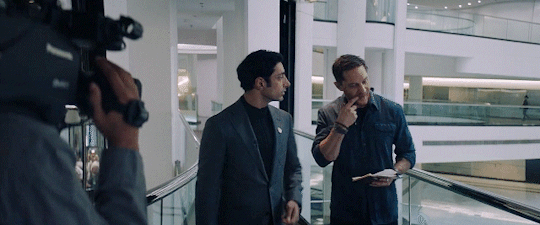
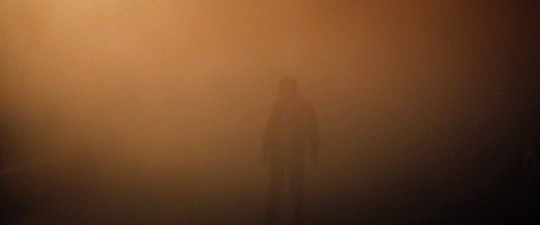

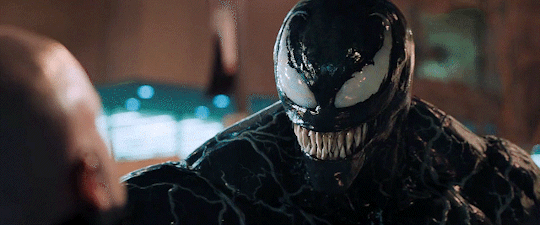
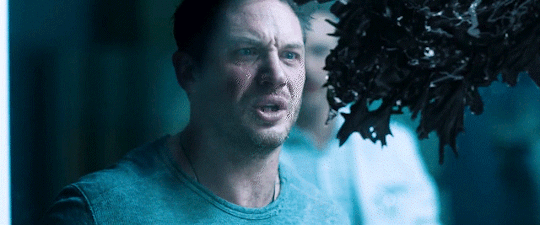
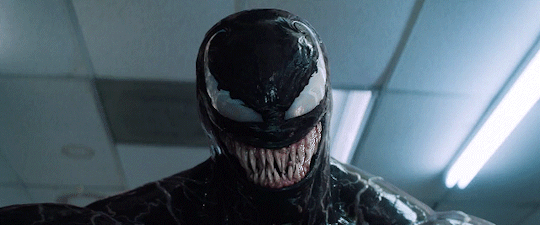
Venom (Ruben Fleischer, 2018)
#venom#venom 2018#venomedit#i feel like this film was trying to be two different films at once and i hated that#the eddie/venom buddy comedy/romcom was funny and good but there was SO LITTLE of it#and the action/marvel part that was most of the movie was so uninspired and boring#i wish they commited to the absurd comedy more it would have made a far better film#anyway i had great fun for about 20% of the movie XD#films i watched in 2023#i made this#i just want a tag for the things i personally put out into the world
40 notes
·
View notes
Text
Sonic opinions - 2
In large portions of every fandom, it looks like it prevails the idea that you can only take one of two positions: praising the story in every respect, including both the ideas themselves and their execution by the writers, or admitting not to like the story and not to praise any element of it at all. I think my ideas regarding the Archie-Sonic comics and the Sonic franchise in general cannot be pigeonholed into either of these two extremes.
More below the "keep reading" cut.
I loved all the world-building in Archie-Sonic, the elements the comic introduced, their many characters and the potential to tell stories about them; I also really liked much of the art and personal styles of several artists Archie-Sonic has had throughout its history, with very few exceptions (and such exceptions include Ron Lim, of course). That's why, of all the Sonic continuities, I often use the pre-reboot Archie-Sonic comic as the primary source for world-building elements and story ideas.
What really makes me feel bad about that comic, what motivates most of my criticism, is the ideas’ execution by the main writers, as well as aspects that I think are more linked to each writer as a person, the unique way in which each of them has written their stories.
Firstly, Michael Gallagher: the writer for the first few dozen issues of the comic had a terrible sense of humour, and this hurt the comic hugely since those first issues were fundamentally based on that low-quality comedy style. The characterization of the entire cast also suffered greatly from this; in Sally's case, something quite ironic happened too: Gallagher portrayed her as bossy, annoying, temperamental, usually bickering with Sonic, and now that's also how Sally is seen by many fans of the videogames’ continuity (at best). Other than this, not much more could be said about him.
Karl Bollers wrote quite decent stories with some nice comedy, with “Return to Angel Island” being his best work, one of the best stories in the entire comic and perhaps even one of the best in the franchise; but Bollers’s work was "torpedoed" by Ken Penders and then-editor Justin Gabrie, which ruined the stories’ final versions sometimes or led to elements introduced by Bollers being "retconned" and overwritten by whatever Penders smoked and decided to do when taking over. The characterization of Fiona Fox is one of the main examples, with Bollers's Fiona being a quite under-utilized character but with a great potential that would later be wasted by both Penders and Ian Flynn. Another similar case was Sally breaking up with Sonic: Bollers tried to give context to such a drastic decision by Sally and show how she was the one who was suffering the most at that time and also that both she and Sonic were partially right, but Penders and Gabrie didn't let Bollers develop this subplot properly and all we had was a quite infamous scene that unfairly made Sally one of the most hated characters. It’s also known of several plans Bollers had for future stories, and one of them was Antoine being corrupted by the Source of All and turning into a villain; this had the potential to be a good story by subverting the concept of the Source of All and making it an actual threat, but on the other hand, it’d have meant resorting once again to the resource of "this character isn’t doing anything, let's make them evil", something quite disappointing, which later would have disastrous results when Flynn did the same with Fiona a few years later. However, these plans of Bollers were just ideas, and the quality of a story created from them still depends a lot on execution. In the end, I can't say anything about how good or bad Bollers was as a writer, simply because I have no way of knowing what his stories would have been like if he had been given more freedom and had stayed as the writer longer.
There were two writers who influenced Archie-Sonic comics far more than any other writer in its history: Penders and Flynn. The first of them was a retarded pervert with an overly inflated and fragile ego. He became obsessed with the primitive, toxic ideal of "family" North-Americans have. He wrote nonsensical, contradictory stories, having already decided the end down to the last detail long before even thinking about how the story would come to that end (I also made this specific mistake a few times when I was just starting to write fanfiction, I must admit). He increased Fiona's age in order to be able to pair her with the Don Juan that Sonic had become, which also ruined Fiona's characterization forever. The issues 150s -right before being replaced by Flynn- were the worst part of Penders’s run, as Bollers was no longer there to put a stop to his madness in any way, and it was at this time when there was the most egregious case of Penders pouring into the comic his worst perversions and retarded ideas: he hinted at a sex scene in one of the most infamous cases in the history of the entire Sonic franchise, although it wasn’t infamous for the implied sex per se but rather because what happened was technically a rape by deception; to add insult to injury, the writer implicitly blamed the victim some years later when asked about it on Twitter.
I could go on talking about “Ken Perverts”, but I think that's not necessary and would be a waste of time since, as everyone here already knows, he's been the laughingstock of the entire Sonic franchise for years; @ponett even has a whole secondary blog, @thankskenpenders, mainly dedicated to this. On the other hand, there’s still another writer who has also contributed a lot and also made huge mistakes but is not criticized in the least by almost anyone, simply because he was better than Penders.
Ian Flynn usually reduced the characters to slightly oversimplified portrayals, similar to the personalities of the characters in the most recent videogames. Under his pen, Sonic was more sympathetic but his words sometimes sounded too empty and shallow, his apologies for past mistakes didn’t lead to genuine changes on his part, and sometimes he even seemed plain insensitive to all the tragedies happening around him, especially at the Mecha Sally Arc (I nickname Ian Flynn’s Sonic "Plastic Smile" for this). Admittedly, this had already happened several times with previous writers (Penders portraying Sonic as a Don Juan, as I already mentioned), and this is why I think the original Sonic from Sonic SatAM was always better for feeling more "genuine", less "empty", and more heroic and likeable as a result. Perhaps the only ones to escape the oversimplified portrayal have been Shadow and E-123 Omega, whose characterizations in Archie-Sonic were the best in the whole franchise.
Besides, Flynn had strong favouritism for Amy Rose, which only made things worse because this Amy was much more similar to the one in the videogames from Sonic Heroes onwards. Anyway, this also happened with previous writers, like when Amy wished to be younger at the cost of a chance to save Sally's mother and no one ever berated her for it.
Let’s look at the villains. Unlike the typical Eggman from the videogames, with his follies, eccentricities and other absurd aspects, the Robotnik “inherited” by the comic from Sonic SatAM was explicitly a genocidal bastard and crueller while at the same time being sane enough to realize everything he was doing (@robotnik-mun already spoke in detail about this once); however, Flynn tried to combine the two characters into the pre-reboot Archie-Sonic Eggman, and the result created some severe problems with the stories’ tone. Something derived from this was how Sonic let Eggman live and even felt sorry for his fall into madness, in addition to treating him as if they were the Sonic and Eggman from the videogames, Sonic X or Sonic Boom; it’s worth remembering this Eggman technically is a sort of reincarnation of the SatAM Robotnik (his exact nature is quite complicated and includes parallel universes, but yes, he’s supposed to be exactly the same as the SatAM Robotnik, with memories and everything) and this Sonic is supposed to have fought a bloody decade-long guerilla war against him just like his SatAM counterpart.
Scourge was turned into a massive Mary-Sue who achieved easy victories, as subtle as a huge neon sign saying "the bad guys win"; he was also an abusive manipulator towards Fiona Fox, and Flynn was unable to show that properly for fear of making his pet look no longer cool, which makes you wonder how alike Flynn and Penders might actually be in some ways. To clearly understand the horrible damage this has caused: it not only created a generation of young Sonic fans -mostly boys from the USA- who romanticize abuse either consciously or unconsciously, but also there are even women -including scholars, committed feminists and transgender people who are also activists for social justice- who either sympathize with Scourge or think Fiona made a right, wise, rational or informed decision by joining him in the story (I’ll not give names of those women, I’m not really eager to get into heated fallacious discussions about “the true meaning of Feminism”); to top it off, among the writers who started working with Ian Flynn either on IDW-Sonic or the last years of Archie-Sonic, there’s at least one person who got the job of writing official Sonic comics after gaining quite a bit of fame with a fan-comic where they used the pairing of Scourge & Fiona to inspire its readers to feel sorry... for Scourge. And speaking of Fiona specifically: the subplot of her career as a villain was ill-conceived, was built by using as a cornerstone the A-story of Issue #150 (that quite infamous and widely known story written by Penders where Scourge may or may not have raped Bunnie by deception), and was also seemingly "abandoned" as Fiona ended up merely being Scourge's new abuse victim girlfriend and her status as a traitor didn’t even have a significant emotional effect on the Freedom Fighters.
Flynn also followed something like a pattern of taking tropes from famous works and then using them when writing the comic but not actually understanding why those tropes had worked in the first place. Perhaps the prime example of this was Scourge giving Sonic the Joker's "One Bad Day" speech: it almost felt a bit like giving the same speech to the Batman of Batman vs. Superman, as Sonic had already had a whole "bad decade" and was still a hero despite it; also, Sonic's answer to that speech (telling Scourge it only takes a tiny bit of selflessness and decency for him to be a good person) wasn’t that great, not at all compared to the mildly masterful answer Batman had originally given to the Joker in The Killing Joke, and it even made Sonic look more like a bad judge of character.
Lastly, the entire Mecha Sally Arc was poorly planned, had some contradictions with itself and with previous stories, was stretched through dozens of comic issues no matter if that felt forced, and the main events and plot twists throughout the story arc were heavily based on shock-value without giving any substance to this or making it a bit more sense when putting it under scrutiny; meanwhile, Flynn always seemed to have quite a hard time when writing long story arcs, so these long stories looked like he was trying and outright failing to imitate Toriyama (someone quite known for putting together stories ad-lib according to what seemed most convenient at the time).
Despite this, it looks like those Sonic fans who are still interested in material outside of the videogames will keep buying and reading whatever Ian Flynn or one of his colleagues writes, simply because they’re better than Penders... even though it's been 15 years since Penders wrote something official about Sonic. Seriously, we should have gotten over it by now, instead of continuing to compare all material in the franchise with Penders's work, which sets the bar too low for any official content creator. Now that I think about it, Penders's work is to the North-American Sonic canon what Sonic 2006 is to the videogames: people can criticize the latest games all they want, and rightfully so, but if someone even casually mentions Sonic 2006, any Sonic game from 2010 onwards instantly becomes a masterpiece just for being marginally better than Sonic 2006; the same happens between Penders's work on pre-reboot Archie-Sonic and any other North-American Sonic comic written by Flynn after Penders left.
Right now it looks like it's also forbidden to criticize Flynn as a writer at all just because he's much nicer in his personal life and engages with fans more directly through his podcasts, or because Flynn is truly progressive while Penders claimed to be progressive and a feminist and was affiliated with the USA Democrats but his work showed how misogynistic, perverted, retarded, reactionary and downright sick he was. Also, now saying something about Flynn other than total blind admiration for him and his work, even asking for the Freedom Fighters to return in the IDW comics, has become synonymous with agreeing with those assholes who cry "Rally4Sally" or "Udon4Sonic" on Twitter: "nostalgic" fans of SatAM and Penders's work on Archie, in their 40s or 50s, deeply conservative and absurdly paranoid, who claim that those new inclusive cartoons such as Steven Universe or She-Ra "are ruining their childhood", are mad at Flynn just because he hinted Sally and Nicole may be a lesbian couple (and in a rather platonic way, not even romantic in the traditional sense), and try to justify their own warped ideas and fantasies about SatAM by ignoring any “liberal” political messages SatAM may have had at the subtext level.
#sonic fanfiction by mashounen#sonic opinions by mashounen#sonic#sonic the hedgehog#archie sonic#sonic comics#sonic satam#michael gallagher#karl bollers#ken penders#ian flynn
10 notes
·
View notes
Text
Remembering My Hero, Robin Williams, Five Years Later
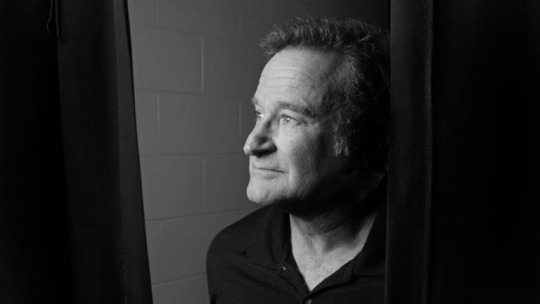
Not terribly long ago I used to deride others for feeling sad in the wake of a famous celebrity’s death.
My argument would go something like in the grand scheme of things their deaths “didn’t matter” when compared to various other atrocities and terrible, tragic things going on in the world. I even wrote an entire opinion piece poo-pooing the general populace for being sad in the wake of Whitney Houston’s death waaay back in 2012 for my University paper back in the day all largely because since I didn’t feel anything no one else should essentially.
Then Robin Williams died.
Well, more accurately Robin Williams committed suicide then everything changed for me.
To this day, I can’t recall a single death that has affected or beat me down more than this famous, larger than life comedian’s all too early passing and it still eats me up every time I think about it even five years later. You see, Robin was something of a hero of mine, an uber talented and charismatic funny man who seemed to perform his comedy with the kinetic energy of a hurricane and his humor often brightened my darkest moments growing up.
For him to die the way he did was beyond devastating for me.
Every 90s kid grew up on his various memorable performances. Whether it was “Aladdin” as the Genie, Peter Pan in “Hook” or masquerading as a nannie to win his family back in “Mrs. Doubtfire” we all had one performance that made us all fans early on.
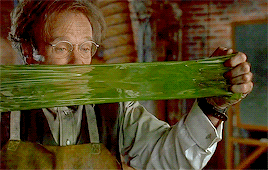
(For some reason I always remember “Flubber” first though haha)
I didn’t start to truly appreciate him though until high school when I discovered his comic stand-up routines from his earlier years.
Despite not growing up in 70s or 80s his humor was nonetheless electric, unlike any previous comic I had seen up until that point and his impressions of Ronald Reagan, Henry Kissinger and Richard Nixon are still among my favorites. Live at the Met is an all-time favorite comic stand-up performance and much later Live on Broadway still has one of the greatest closing jokes ever:
youtube
(”Harder than Chinese Algebra” is definitely a line I’ve used in my college years)
What I loved most about his performances was that he could be boisterous and sincere at the same time. Being both genuine and vulgar simultaneously and in the best way. Weave bizarre character references into personal tales of his own life. Tell a multitude of hilarious stories and references at 100 miles a minute like a comedic roller-coaster ride that lasted the duration of his performances and you never wanted to get off it. It’s true when Time Magazine referred to his comedy as something all comedians loved and respected but could never in a million years duplicate. Robin was a one of a kind talent, the penultimate original, and fans loved him for it.
Robin did his performances with such natural gusto and spontaneous hilarity that it might shock you to know he always wrote virtually every line of his stand-ups before his performances. To bring that humor to life with such infectious joy takes real talent and no one can ever deny Robin was one of the best if not the best at it.
The remarkable thing is on top of his stand-up the dude was an all-time great actor on top of that displaying ranges from as absurd as “Death to Smoochie” and “World’s Greatest Dad” to as sensitive and thought provoking as “Good Will Hunting” and “Dead Poet’s Society.” Robin wasn’t afraid to show a darker side either in famous roles such as “Insomnia” and “One Hour Photo.” His range was simply amazing.
youtube
(Personally my favorite^)
Like many high-schoolers, I was angsty teenager prone to hormonal anger and twitches, depressed I couldn’t score girls and that I wasn’t popular but at the end of the day I always had Robin to cheer me up.
As I became more and more a fan I’d read more into his life learning I actually had quite a few things in common with the famous funny man from a love of all things sci-fi including even anime and Warhammer to a deep appreciation of video games as he famously named his daughter Zelda after the titular Nintendo princess of the same name.
He was not just a comedian to me; he was one of us. America’s favorite funny, semi-secretly nerdy uncle and I loved him for it.
youtube
(The sweetest Nintendo commercial ever. #uglycrying)
I would carry my love of this magnificent comedian into college where I would routinely re-listen to his greatest hits when I was at my lowest of lows and boy did I have plenty of them during this period of my life and many of them revolved around suicide.
For reasons that are too personal to expand on, I had a friend who I was close with early in college who had some deep mental health and abandonment issues. She would constantly fear the worst out of others’ intentions and whether I would stick around with her to help her through it all in life. This put a heavy drain on myself and eventually it broke me enough to just attempt to cut her out of my life.
So, she threatened to kill herself when that happened.
If you’ve never tried talking someone down out of suicide before it is by far the scariest thing I have ever had to do and I wouldn’t wish it on anyone. To try to reason with someone who is convinced that their life is meaningless that no one cares about them that they are better off dead than alive is unlike any terror I’ve ever experienced. What scared me the most was what I would do with myself if I failed to talk her down. Could I live with myself if I couldn’t do enough to save this person? Is the blood on my hands too since it was my actions that drove her to this point?
Well, long story short, I did succeed in talking her down but it left a tremendous mark on my soul that I don’t think I’ll ever forget (it also would not be the last time this would happen). I did eventually move on from this person (for both our sakes) but the depression it left within in me still stings.
There are limits to emotional dependency that we should all understand and in my need to fix everything for those I cared about I started not to care about myself and it damn near killed me. You should always try to feel empathy and help those who are need but you can’t forget about yourself in this regard because it will destroy you too. Painfully and slowly.
That semester I listened to probably more Robin Williams than I ever had in the past. His humor keeping me from being an unfeeling zombie and my mind from breaking from the stress of that year (there were other events that compounded what was going on.) Robin kept me going, kept me laughing in a period I didn’t have a lot to feel joyful about and I’ll always be grateful to him for that.
Then a few years later, as well know now, on August 11, 2014 Robin took his own life.
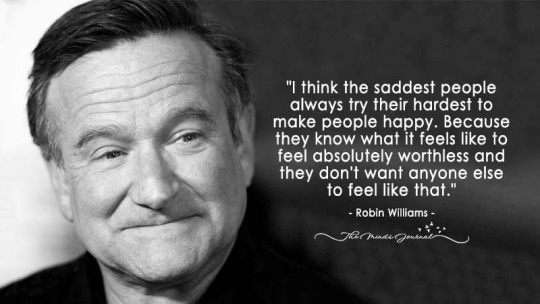
Like most everyone else I was shocked, distraught, and in total disbelief. How could a man who had seemingly endless joy and lived by all measures a far more successful life than most people ever would feel the need to kill himself?
It was tragic beyond comprehension.
The aftermath of course was an outpouring of love and support to the Williams family particularly his children but there was also the detractors as well. People who denounced him as some sort of coward for taking his own life, Christian zealots who believed he was rotting in hell for his sin and all matter of bad takes regarding him being too privileged to be depressed. It was infuriating and broke my heart all at once. Here was a man who more than most probably deserved a happy ending, dead by his own hands and now subjected to dumb moronic statements by people who probably will never understand what depression does to someone.
You’d would only need to a modest amount of research to understand where Robin’s depression could come from though. Despite growing up in an affluent household his father and mother were rarely there with him, raised practically by the maids in his household and by himself most of his childhood. He had survivor’s guilt for being in the same room John Belushi died in many decades prior (which would become a wake-up call for his own drug addictions). Also, he was great friends with the late Christopher Reeves who went to school with him Julliard and that shouldn’t require too much explaining there.
youtube
(Personal pain never stopped Robin from lampooning himself of course)
But the real death knell probably came at the end when months prior Robin’s suicide he was diagnosed with Lewy Body Dementia Association and early stages of Parkinson’s disease. Now anyone being diagnosed with these conditions would be devastating by itself but if you frame it in the mind of Robin Williams, a man who’s comedy and charm relies almost entirely on spontaneous-ness, extreme attention to detail and constant joy this is like losing the very thing that made you who are, what people love you for; your core identity.
Robin was no longer going to be Robin.

I’m not asking people to like suicide or accept every instance of it but people should try to understand why and not judge others for it. Sometimes the demons are just too strong and we can’t fault others especially a mind as crippled as Robin’s was at the end.
If there’s one positive that came out of Robin’s suicide, it’s that the conversation on depression and mental health has notably shifted since that time. In the years since, it’s more acceptable now to feel sad no matter what your background is; you didn’t need to be a coal miner with black lung or a soldier with PSTD to be acceptably depressed anymore (and no, before any of you start I’m not judging those people). Athletes and celebrities alike such as Demar Derozan, Ryan Reynolds, Serena Williams, and Chris Evans have all come out about their own personal struggles with their inner demons. It’s now okay more than ever to feel inadequate even if on paper you have ever reason not to feel that way.
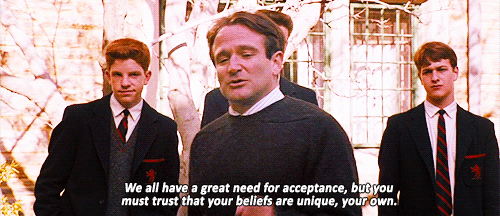
Though society hasn’t become completely understanding of mental health issues yet society is still a lot more open about it than it was before at least. It’s not a silver lining, don’t make that mistake with what I’m saying, but it’s comforting in a strange way knowing that even in death Robin can inspire positivity.
It’s a shame and tragic that Robin didn’t get age gracefully into his twilight years and given the current state of the country and the world as a whole we could definitely use that trademark wit to lampoon our reality right now but I’m glad that Robin helped keep me going in my most formative years.

(I mean seriously though, could you imagine Robin getting a crack at this motherfucker today on stage?)
It’s not hyperbole to call Robin Williams one of the greatest entertainers of all-time and though his time in this world was cut short by his own hand he has still left an indelible mark on myself, his fans and the rest of the world. Depression and mental health is a fact of life, generally speaking all of us will struggle with it at some point but if we can get help early and not be afraid to ask for it or even cry for it then maybe the world won’t feel so dark for us all.
So please, let’s all remember to take care of ourselves whether that’s seeking friends or professional guidance. There is strength in sadness, power in grief and love when you are lonely. You owe it to yourself to seek help and trust me, there’ll be arms open to bring you in.
Because you matter.
youtube
Thanks, Captain.
#Robin Williams#Robin Williams stand-up#Robin Williams comedy#comedy#comedian#dead poets society#Death to smoochie#Good Morning Vietnam#Live on Broadway#Live at the Met#Throbbing Python of Love#world's greatest dad#Flubber#Hook#Aladdin#Genie#Aladdin Genie#o captain my captain#Oscars#Academy Awards#Poerty#love#eulogy#Zelda Williams#legend of kora#Legend of Zelda#Nintendo#Weapons of Self Destruction#Tribute#Legacy
1 note
·
View note
Text
qb anime of the year list 2018
Anime of the Year 2018 - the year of girls going to aquariums together
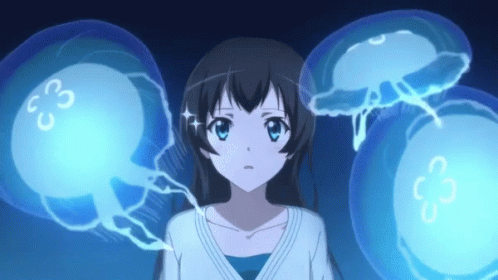
I’ve seen at least one person who claimed that 2018 was the best year for anime in recent memory and I’m inclined to agree. A large majority of my top ten list is shows that I would consider perfect and even shows that blew away what I thought was possible in the medium. It was a revolutionary year and makes a strong argument that anime wasn’t a mistake after all. - qb
#1
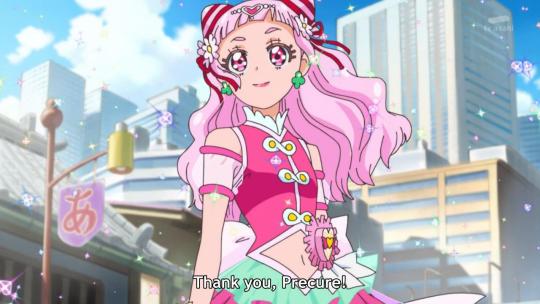
Hugtto! Precure blew away my expectations every week for close to a year. I don’t exactly know what to say about it here, since this isn’t the last time I’ll talk about it for sure. It doesn’t even end in 2018, but it was such a huge part of my 2018 in anime that it would be inaccurate to not include it. The only way I can think to explain Hugtto! Precure is to talk about the Netflix She-ra reboot. She-ra’s a pretty basic modern Dreamworks cartoon, with some interesting ideas thrown in and likable characters, but mostly held back by what they could realistically allot for production. Because of this limitation, She-ra goes hard on a single perfect episode (if you’ve seen it, you know which one) that stands out in a big way and shows the full potential of what they set out to make. Usually, Precure is lucky to get a handful of these stand-out episodes in a season, and most of the time just gets by, due to being an annual series that can never, ever take a break. Normally, the first few episodes of a Precure season can be counted on to be strong, but the realities of anime production being hella tough inevitably catch up.
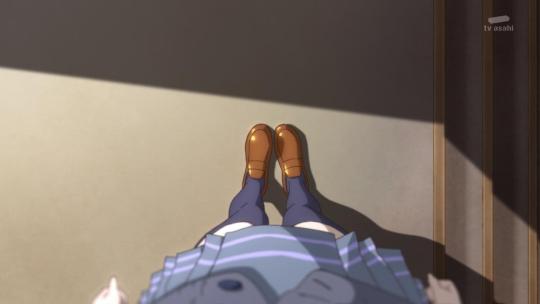
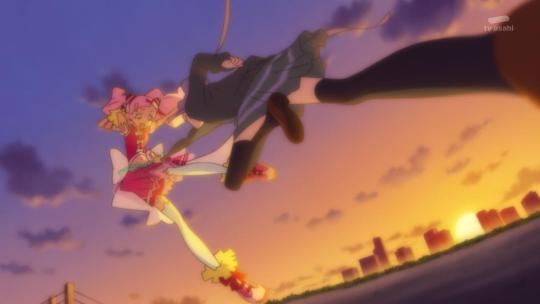
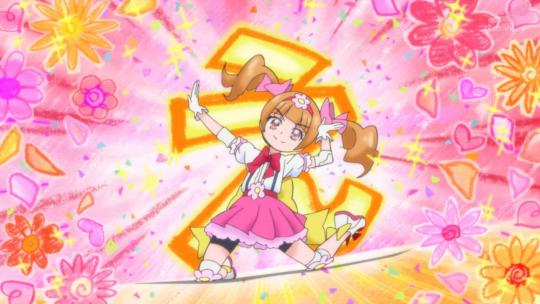
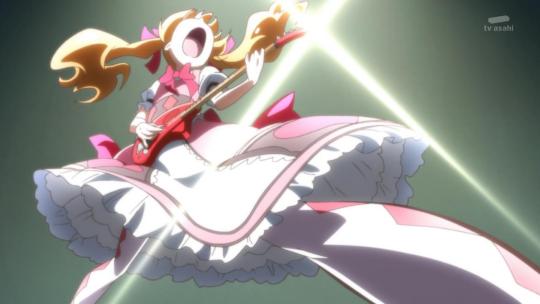
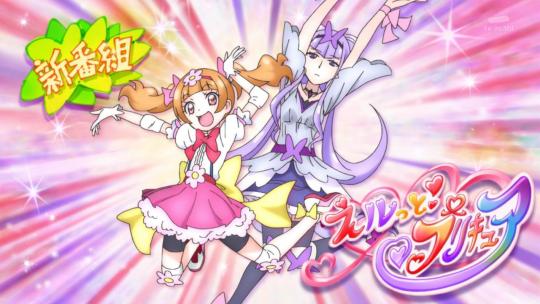
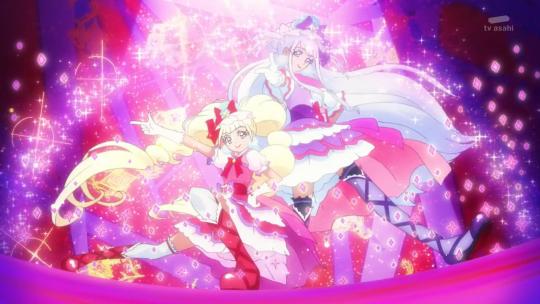
Hugtto! Precure started with an incredible opening arc, then never let off the gas pedal. Nearly every episode of Hugtto is a stand-out, never-before-seen, innovative tour-de-force. The combination of production miracles that resulted in Hugtto has been talked about by me on this blog before, (http://vanilla-blessing.tumblr.com/post/176000267859/hana-is-getting-unstable-a-pink-precure) but the length of time that Hugtto stayed in the paint, going extremely hard every single week with few exceptions, was just absurd. Every season of Precure has one or two peaks, sometimes a good season gets lucky and has even more, the best seasons bat a solid average, but are still expected to be held back by reality. Coming out of the fifteenth season of Precure with a majority of the best episodes in the entire franchise isn’t something that I can wrap my head around, but it definitely happened, mostly in 2018. It’s simultaneously a love letter to the franchise’s past, present, and future made by the biggest Precure fans on the planet, and it’s unquestionably the best season. Hugtto threw what we all knew was true and had accepted about Precure clear out the window, retroactively made older seasons better, watered my crops, brought world peace, ect.
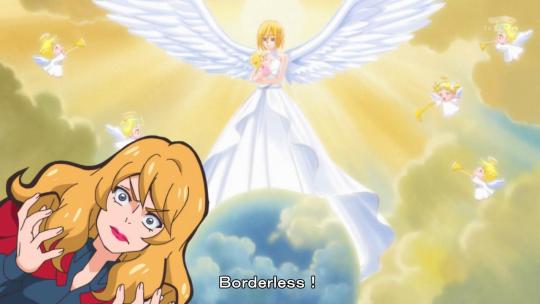
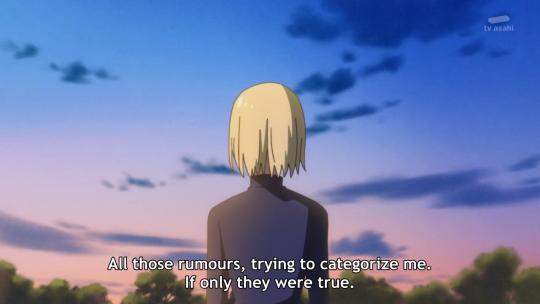
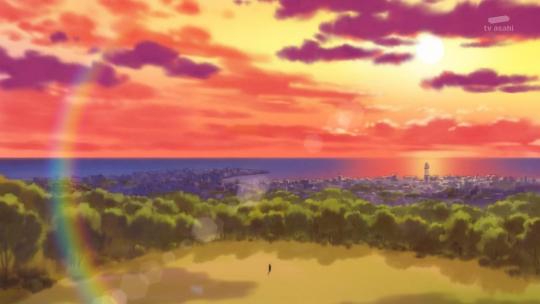
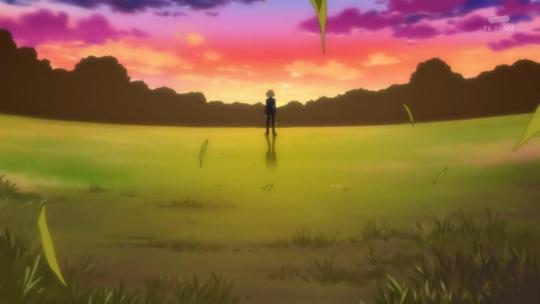
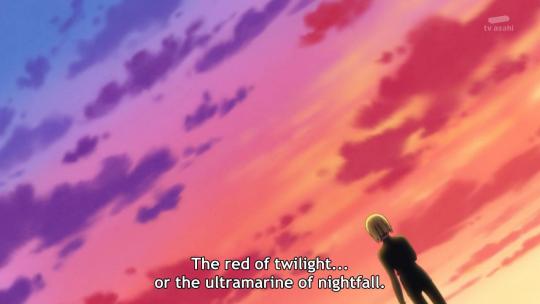
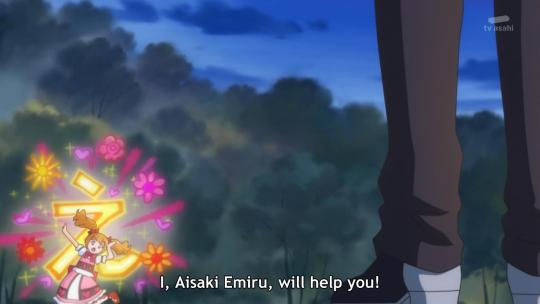
Oh yeah and boys can be cures now.
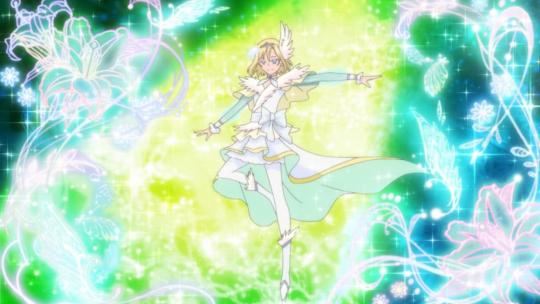
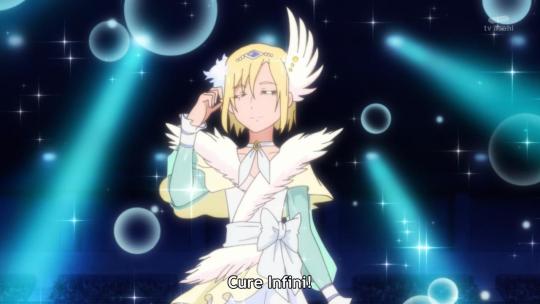
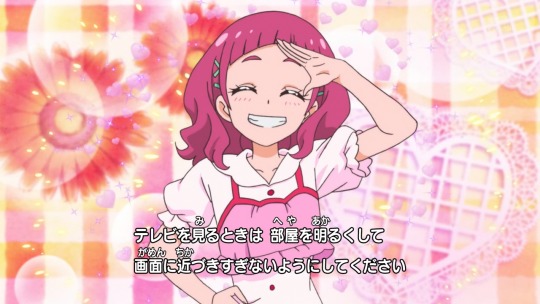
#2
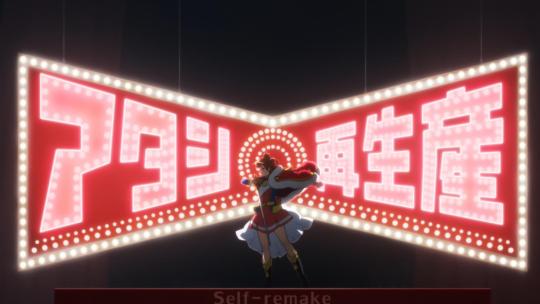
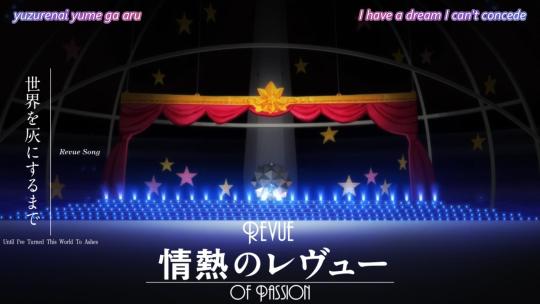
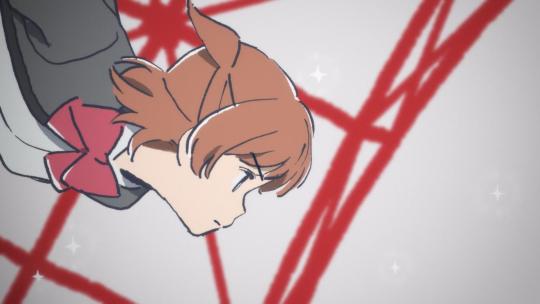
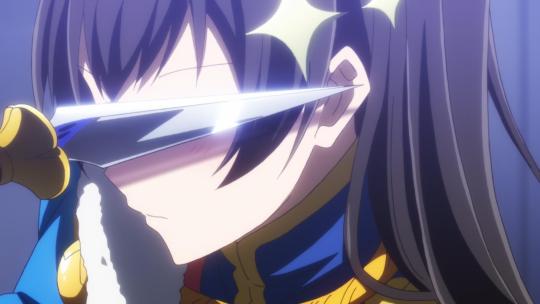
I’m definitely not done with Revue Starlight and this won’t be the last time I talk about it. Revue Starlight essentially carried the Summer 2018 anime season on its back. Starlight absolutely dominated my anime watching schedule; my week was seriously just waiting for and watching different translations and releases with every other show being almost incidental, far less important than waiting for the song lyrics to get translated for an episode I had seen three times already. I won’t get into everything here, since I’ve already talked about it on this blog after all (http://vanilla-blessing.tumblr.com/post/179023723689/subtext-is-for-cowards-revue-starlight), but I need to reiterate that it was such a commanding, unique, stylized experience and didn’t drop a single episode in its entire absurdly high-level production. The only reasonable explanation for this is devil magic, and hell, it was worth it. Revue Starlight is probably in my top 5 anime of all time and I wouldn’t get this list out if I said everything I wanted to say about it. It’s great. Watch it twenty times.
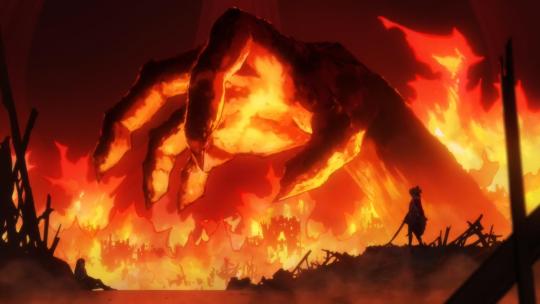
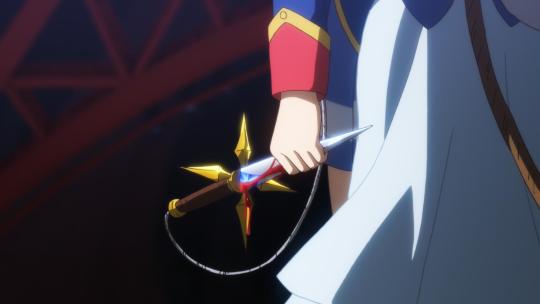
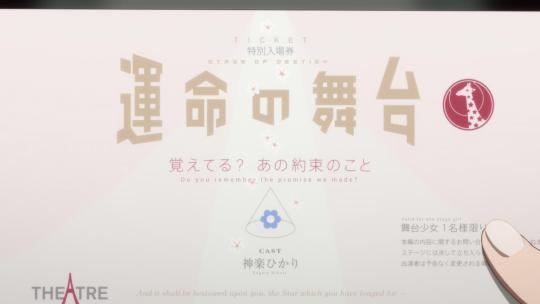
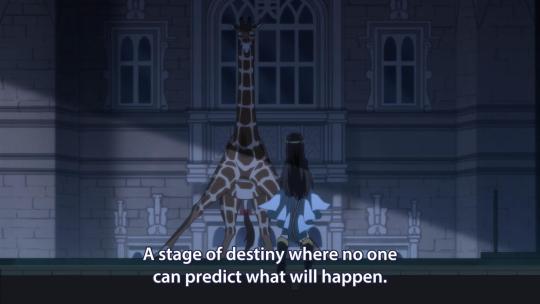
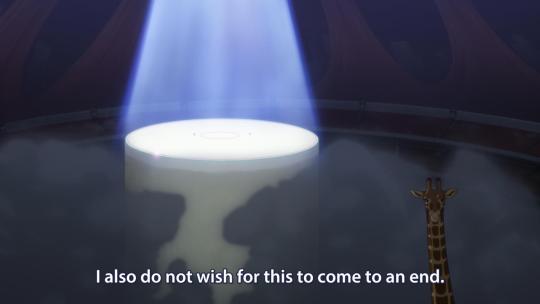
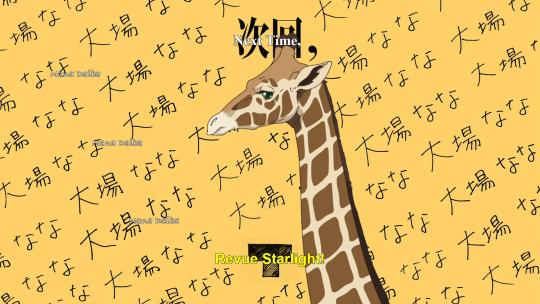
#3
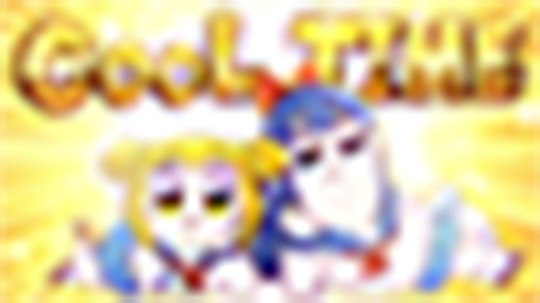
Pop Teen Epic, or Hoshiiro Girldrop, was the most wildcard that has ever been in seasonal anime, and could have been absolutely anything. What none of us predicted was just how much of anything this show would be, encompassing an unprecedented range of artists, voice acting talent, and whatever AC-bu are, each giving their very individual takes on a self-described shitpost comic strip, sometimes covering the exact same material two or three times, with no regard for any sort of cohesion or structure.
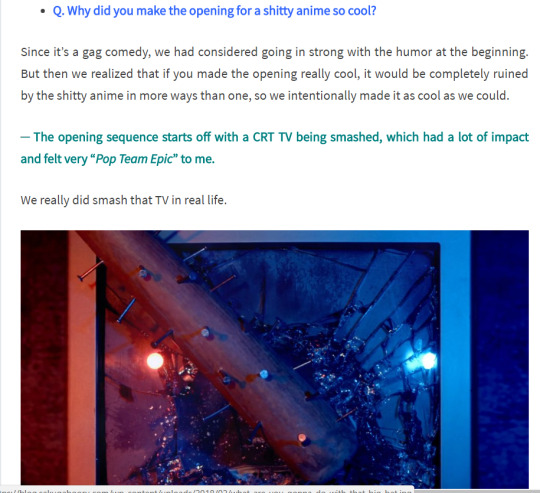
Nothing about this idea should have been funded, nothing in Pop Team Epic has any reason to work, and as a straight adaptation probably wouldn’t have worked. PTE spun gold from trash through the raw effort of artists doing their own thing, which captures the original spirit that made the formerly-cancelled comic popular in a way that’s much too intelligent for haters to understand. Also it got a dub, which is the most ridiculously bad idea i’ve heard in my life, and it owns that it happened.
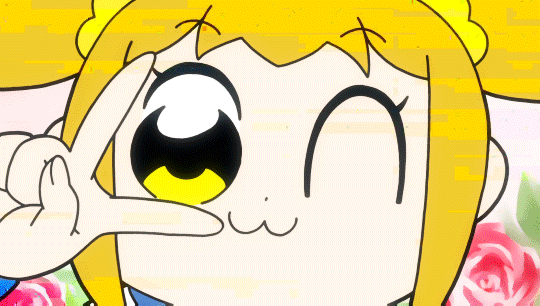
#4
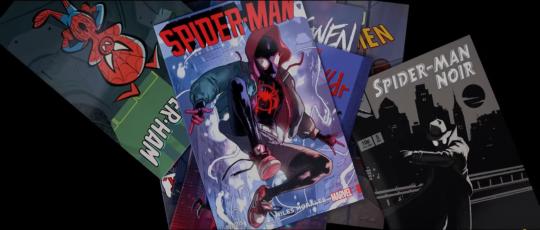
Spider-man into the Spider-verse is legit the best comic book movie ever made. It’s a fun, expressive twist on the most tired superhero origin story of all time, and showcases some of the most sssssssssstyle and raw, real emotion I’ve ever seen in animation. Its particular selection of influences is brilliant and poignant, rising far above the simple fanservice you’ve come to expect from Spider-man. The unrelenting individualistic spirit of this movie will stick with you the longest in the soundtrack, bravely incorporating a side of pop music that you don’t usually get to see in big-budget productions, pulling soundcloud rappers out of their grody (i’m told) dens into the spotlight with equal importance alongside the heroic score. Spider-verse is all about establishing your own unique flavor, and it manages to overwrite every other entry in this cursed franchise with its bold taste.
youtube
youtube
#5
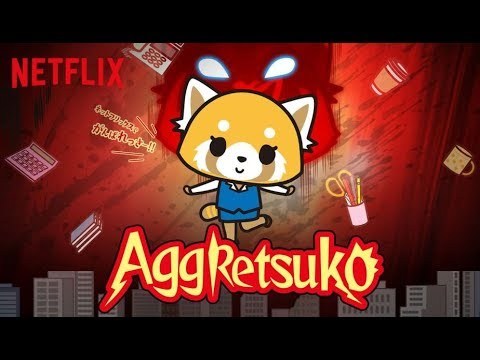
It doesn’t make sense to me how amazing Aggretsuko’s dub is. The impeccable timing of each line, the perfect integration with the comedy, and the optimal length of the episodes are all far beyond what I expected from a Netflix show. It not only converted the original series of shorts that I already had on my top 10 the first year into a godlike longer series I didn’t know I wanted, but went to the effort to bring real metal singers in for the karaoke. Honestly just repeat everything I said in my 2016 list and multiply it by five. I hope they make more. They’re making more.
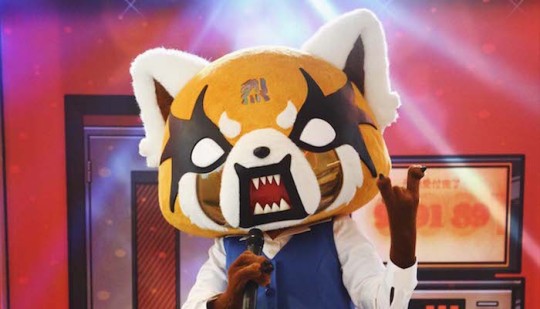
#6
youtube
I was pretty slow to pick up anime in the Winter 2018 season, but I never missed Hakumei and Mikochi, maybe because it was like, the only simulcast on my favorite online anime streaming subscription service HiDiVE. The subs weren’t great, and it certainly wasn’t all that popular, but it was just the relaxing show I needed. Hakumei and Mikochi brought me back to my favorite non-racist parts of the Redwall series of books: friendly animals, delicious foods, alcohol, and rustic songs. I was ready to put it on my list for simply being a cute healing foodie anime, but to my surprise, it had much more in store within its tiny world: stark confrontations with mortality, a shy riverside necromancer, the inexplicable remake of The Raid: Redemption in miniature, fashion trends, frogs, carpenter weasels, carpenter skeletons, ghost celebrations, a country beetle with lofty dreams. The list of memorable people, places, and things contained in the gnomish roommates’ tiny world goes on and on.
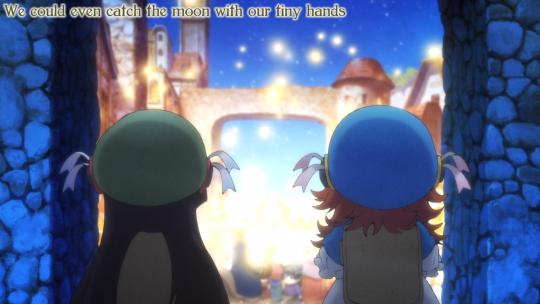
Masaomi Ando’s directing went completely along with the storybook aesthetic, maybe even to an overall detriment, which is exactly the kind of reckless commitment to style I love to see. The distinctive paneling, constantly gorgeous backgrounds, and deliberate pacing perfectly captured the imaginative stories I loved to read as a kid, but with more alcohol, and more sophisticated themes under the surface. Even something anime rarely get right, endings, were perfectly capstoned every week with a short digest that explored more of the history, legends, and very personal lore of their small, unique world. At its core, Hakumei and Mikochi is the calming story of tiny roommates you think it is, but it’s also so much more. They have day jobs and get drunk and remodel their house after it explodes that one time. They gamble dangerously to escape a blizzard, help a photographer give herself a little credit, and rescue their neighbor from a fancy grave of her own making. By the end of the show Hakumei practically built half a town. The collective stories from their everyday adventures build into something tremendous, and it all wraps up on the most perfect ending sequence I could have hoped for, which calls back to every story thus far as a new verse of the show’s central duet is sung. In any reasonable AnimeOTY Hakumei and Mikochi would be my top anime of 2018, but this year, the competition was unreasonable. This show will just have to settle for being the best regular anime of the year.
youtube
#7
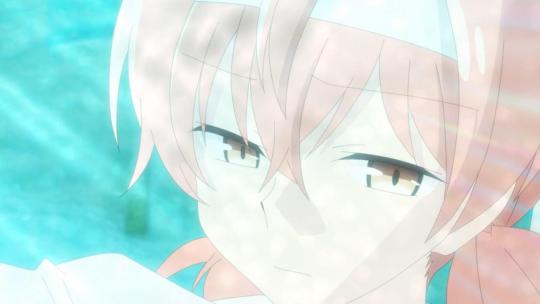
Bloom Into You is an incredible adaptation of an apparently yuri romance manga that raises the bar for anime adaptations in general. I don’t know when, but somewhere along the line I stopped expecting that serious capital R Romance anime would have a distinctive style, and gave up to the notion that there was no demand anymore and a stylized, seinen/josei romance would just never get made. Well that was 2016 and then Scum’s Wish happened which this blog has covered extensively.(http://vanilla-blessing.tumblr.com/post/168842023559/how-lerche-adapted-an-average-trashy-romcom-into, http://vanilla-blessing.tumblr.com/post/168789506264/scums-wish-and-our-messy-uncomfortable) To me Bloom Into You feels similar in concept, as a difficult romantic situation with no easy answers or completely happy people. The main perspective character, Yuu, is among my favorite romantic leads in any series; she doesn’t get romantic feelings, although she wants to, and despite being easily motivated, is kind of dispassionate. Her relationship that she was pushed into with Touko might as well be out of mutual convenience, since Touko doesn’t want to fall in love with someone who would love her back, and Yuu doesn’t think she can.
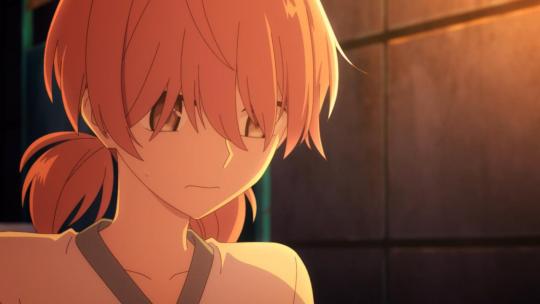
Yuu filters the developments of the series as they grow closer through a very different perspective compared to more emotional leads of usual romance stories, methodically breaking down and considering where she’s at, observing where others are at, before taking an action that makes sense to her. Her growth through the series takes a very different direction than the common dramatic formula; instead of running headfirst into misunderstandings to overcome romantic challenges, she’s compelled to take a step back and position herself in a way that allows her to understand and confront her girlfriend’s issues. The changes that she experiences herself during this process are extremely gradual, but are no less significant to her. Although the dramatic weight of the series is obviously all about Touko, the central thesis of Bloom Into You is to explore Yuu’s complex feelings, and ask to what degree our actions are dictated by our emotions. It’s a heavy topic to be sure, but what makes this anime adaptation special in particular is how the directing and production pull it off, to maybe an even stronger degree than the original material.
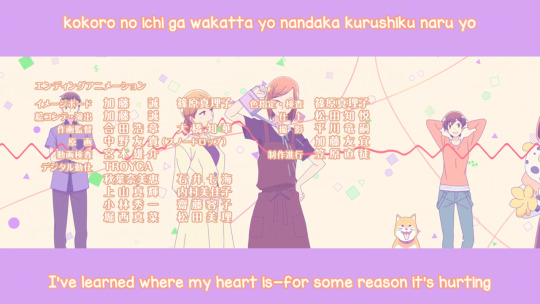
Bloom Into You’s most striking and noticeable feature is the incredible conservation of small movements that connect expressions naturally. Minute changes in characters’ faces are vital to observe the almost imperceptible changes in Yuu over the course of the series, and every aspect of the direction is in service of highlighting these subtle moments. In addition, repeated cinematic themes are reinforced over the show’s run, such as the use of light to impart a blinding realization, flower language to inform deeper personalities, even using a literal (not literal) cinema. Symbols such as trains, masks, and mirrors are used constantly and consistently to reinforce the show’s themes, which should be immediately obvious from the opening animation. I’m still kind of stunned that Bloom Into You’s ending theme is such a banger and managed to use an oscillating sine curve in a metaphorical way. These details might be lost without the brilliant layouts, intentionally resembling a stage, which always push the minute differences front and center. As an anime adaptation, Bloom Into You adds so much value in such a subdued, conservative way that it puts uninspired adaptations to shame.
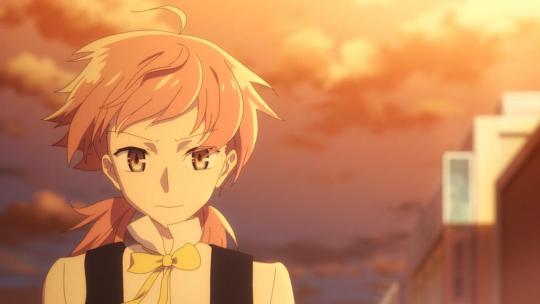
#8
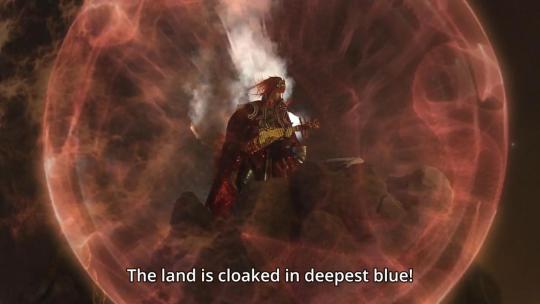
Thunderbolt Fantasy 2 rounded out the year with a good old new-fashioned Japanese-speaking Chinese-Wuxia Taiwanese puppet show. The novelty of this wild series, like, existing at all, is still incredible to me, but I was really wowed by the new characters and the direction the series went in after the already high standards of the first season. Following the outrageous action and fights of the previous season, I did not expect that season 2’s introductory goon would 1. Live past the first episode 2. So quickly become my favorite swordfighter and 3. Have inarguably the most complete character arc of the entire show thus far. The Princess of Cruelty’s struggle against her inner and outer demons in a unreasonably stacked, desperate situation developed her into easily the most compelling character of the season, and the rest of the cast including a corrupt police officer with extremely disconcerting and bad puppet teeth, a ventriloquist rock-lutist, and a nihilist monk each bring their own unique flavors to the table. The table that they throw the puppets in the air from to make the show. All of the new elements of Thunderbolt Fantasy 2 improved an already strong formula even more, and revealed an emotional depth to the series that I’m excited to see developed further. Some people might not call this anime, but those people haven’t seen Thunderbolt Fantasy for longer than 2 seconds. It’s so anime.
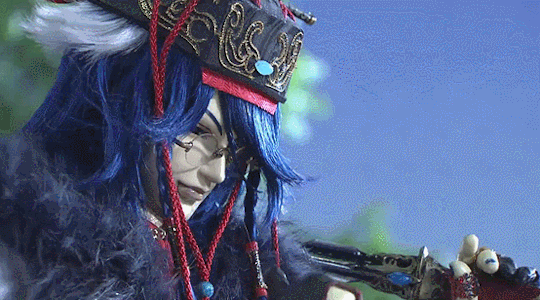
#9
I blasted all available seasons of Star vs the Forces of Evil early in 2018, and it was basically my first foray into straight-up American cartoon magical girl, despite watching all the Japanese ones, which was probably an oversight on my part. That’s because Star Versus is really good, and provided a flavor of magical girl I had been missing out on. I could talk about the excellent sparkle witch aesthetic of the show, fluid animation, and hilarious comedy, but I’d rather spend this blogspace posting Star Butterfly faces.
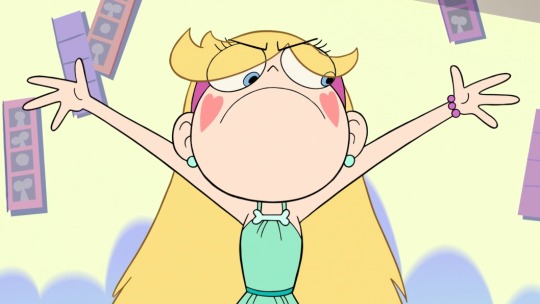
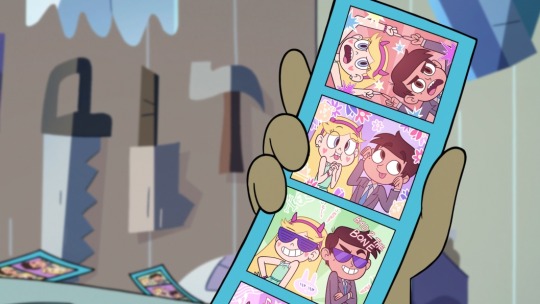
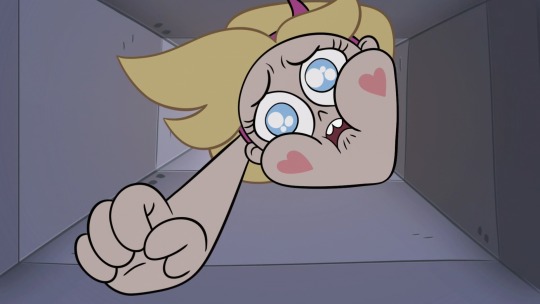
#10
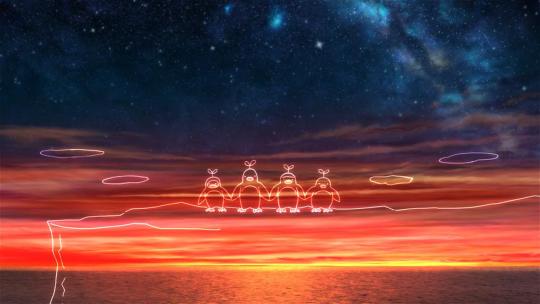
A Place Further Than the Universe, or YoriMoi, or my preferred moniker That Antartica Anime, wasn’t on my radar until well after it had finished airing, but it stuck with me for most of the year. Although it’s definitely melodramatic at times, it utilizes this tendency in exactly the right way to enhance the individual characters’ emotional arcs. Even though I was personally sort of taken out of it for many of the girls’ personal trials, :penguin emoji: is obviously thoughtfully written and carefully constructed, and especially knows how to orchestrate an immense emotional reaction with pitch-perfect timing. If there’s one particular aspect this anime has absolute mastery over, it’s hitting that perfect note and cue to create a memorable narrative climax. And for all my bellyaching about not fully relating to some of the characters, Miyake is definitively the #1 qb-relatable character of the year.
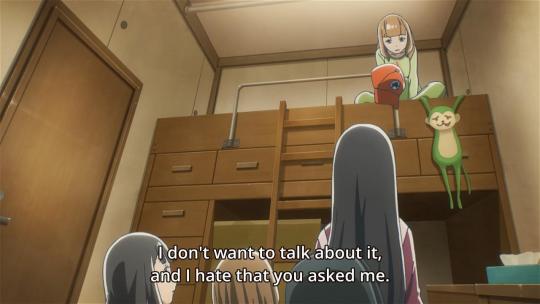
Here’s the rest of my list. Don’t @ me about it because if its not on my top ten then it doesnt really count anymore i dont make the rules thats just how it is
11. Yuru Camp
12. Hisone and Masotan
13. Asagao to Kase-san
14. Devilman Crybaby
15. After the Rain
16. Planet With
- friend of the show @queuebae on twitter
That’s why the 2018 anime of the year award goes to Kaiju Girls 2.
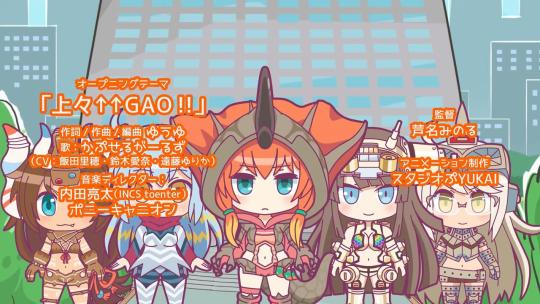
#top ten anime 2018#top ten pop team epics#pop teen epic#pop team epic#hoshiiro girldrop#poppiteppikiu#popttippiku#bob team epic#bob epic team#PTE 2018#Pop Team Epic Season 2
10 notes
·
View notes
Photo

2019 Index: Television
I’m constantly feeling behind with all of the #content on television (streaming services), but I still watched plenty of good things this year while letting a bunch of shows slip by the wayside. Along with some returning (and concluding) favorites, this year had some incredible surprises along the way. Here’s most everything that I watched, in some semblance of order of how much I liked it.
Hall of Fame:
Fleabag (Amazon) had a next-level second series that defied even the highest expectations from its first outing. So exceptionally crafted and sneakily engaging, certain storytelling choices made me gasp and others left me so heartbroken that I stared at the wall for a couple of hours after the credits rolled.
Watchmen (HBO) A combination of a reboot and a sequel, Damon Lindeloff’s update on the graphic novel was and educational, engaging, surprising, and modern.
Succession (HBO) Watching these monsters melt down is the most deeply satisfying activity on the planet earth.
Greats:
The End of the F***ing World (Netflix). Utterly phenomenal from start to finish. So compelling and economical in its handling of trauma and the range of meanings that can be encrypted in the word “what” that it’s hard to believe that each episode is barely a half hour.
The OA (Netflix). Brit Marling’s loopy story may not be for everyone but her level of utterly sincere commitment is all the way for me. The OA is the definition of too (crazy) beautiful to live; so I honestly can’t be too mad at Netflix for giving us two more seasons of it than anyone else in their right minds ever would have. Still, I would’ve loved to see how they followed up on the mind-bending finale.
Schitt's Creek (Pop/CBC). I ignored this show for far too long due to its silly name and a misconception of its premise and mood and then I binged every available season in the span of weeks.
Chernobyl (HBO). A limited series about the world’s worst nuclear disaster is exactly as grim as it sounds.
Mr Robot (USA). Hit some operatic heights in wrapping up several seasons of conspiracies and righteous hacking. The finale was trippy, emotional, and maybe explained too much, but the whole show was a dazzling ride. Goodbye, friend.
The Magicians (Amazon). This show has no right to be as good as it is, yet season after season it continues to pull dark and delightful tricks out of its sleeves. I can’t believe this show even works at all, but what a finale.
Veep (USA). If anything got in the way of Veep cultural ascendency, it’s that reality outdid it on a daily basis in terms of absurd venal incompetence.
Dark (Netflix) Binged this twisty German time-travel show without a theory wall full of crisscrossing yarn and it was the very best kind of perpetually confused headache, especially since I was constantly afraid to google questions for fear of inadvertently revealing plot details. A perfect example of something cerebral and ambitious, with an ever expanding and collapsing scope, that never neglected its emotional core.
Game of Thrones (HBO) The final episode was kind of a cluster and there were too many shortcuts, but the scale of filmmaking and storytelling was unlike anything else on television.
Very Good:
The Good Fight (CBS All Access): Another one that I left in the hopper for seasons and then binged aggressively. I wish that I had had the first couple of seasons in real time; they felt like a balm to the constant sensation of being made insane by national politics. The third worked less well for me -- Michael Sheen’s Roland Blum was too big a swing in an already heightened reality -- but it’s still one of the great pleasure watches of the year.
You’re the Worst (FX). A very strong, if too-often overclever and frustratingly withholding, final season that made clever use of time-confused narrative structures to keep the final twist a surprise.
Mindhunter (Netflix). This season deepened its characters while they struggled to make sense of a confounding series of killings neglected due to racial injustice.
The Rest, in approximate order of goodness:
Democratic Primary Debates (various). A cast of thousands with the future of our planet hanging in the balance. At least one candidate has a plan for that.
Hard Knocks (HBO). Antonio Brown’s presence made this always-exceptional documentary feel a bit more like a reality series.
The Crown (Netflix). Ultimate comfort food; still savoring my way through the third season, which survived a wholesale reset of the cast.
Catastrophe (Amazon) Yet another of these phenomenally compact “comedies” that do more in a half hour than some shows do in an entire season.
Killing Eve (BBCA) Another season of cat-and-mouse from Europe’s favorite murder girlfriends.
I Think You Should Leave (Netflix) Some of the sketches -- like “Baby of the Year” -- made me laugh so hard I thought I might need a trip to the emergency room.
What We Do In The Shadows (FX) A sweet spin-off with the sensibilities of the film was a pleasant surprise.
The Mandalorian (Disney Plus) A throwback structure with an infinite budget and an adorable Baby Yoda. There’s not a lot to this show, but I loved having a half-hour series in the rotation that never felt like homework. The closest I’ve gotten to the feeling of Saturday morning cartoons.
Big Little Lies (HBO) A really fun soap opera with all of the biggest stars, Meryl Streep with crazy dental prosthetics, and Shailene Woodley vining hard to Sufjan on the beach. What’s not to like?
Silicon Valley (HBO) Maybe it started to fade, but even at 75% battery it was still pretty entertaining.
Billions (Showtime) Pretty dumb, but kinda fun. A very poor man’s Succession.
True Detective (HBO). Better than the two seasons that preceded it.
Legion (FX) Had its moments, but the loopy, psychedelic, too-often story-averse madness made it hard for me to ever fully invest.
Arrested Development (Netflix) One of the few shows I regret watching, but I couldn’t not finish it.
Comfort Foods
Top Chef (Bravo), Below Deck (Bravo); Below Deck Mediterranean (Bravo), Vanderpump Rules (Bravo), Law & Order SVU (NBC)
Started but haven’t finished (listed in approximate order of likelihood to pick back up)
The Good Place (NBC), The Marvelous Mrs Maisel (Amazon), Better Call Saul (AMC), The Deuce (HBO), Fosse/Verdon (FX), High Maintenance (HBO), The Morning Show (Apple), Russian Doll (Netflix), The Deuce (HBO), Pose (FX), Shrill (Hulu)
Haven’t Yet Started, But Really Do Plan to Watch
My Brilliant Friend (HBO), Deutschland 86 (Sundance), Barry (HBO), His Dark Materials (HBO)
1 note
·
View note
Text
When We Laugh at Nazis, Maybe the Joke’s on Us – The New York Times
Even if Max Bialystock hadn’t gone to prison for embezzling from the backers of his hit Broadway show, trouble would have found him one way or another. Didn’t he slap his business partner, the accountant Leo Bloom, after dousing the poor man with a glass of water during working hours? And while Max’s hanky-panky with Ulla, the receptionist, may have involved consenting adults, his whole business model was based on trading sexual favors with senior citizens for money. If ever a man in show business was in need of cancellation, it was surely Max Bialystock.
Not a chance! Max is a beloved figure who has, for more than 50 years, inspired not outrage but delight. The man is an institution, an archetype. He turned a song-and-dance spectacle about Hitler into a Broadway smash. Hitler! Max’s exploits have been chronicled in a 2005 movie and a long-running stage musical, both called “The Producers” and both starring Nathan Lane. Long before that, Max was played by Zero Mostel, in the first film directed by Mel Brooks. That original “Producers,” released in 1967 with a very young Gene Wilder as Leo, was a staple of my youth.
Now that fascism seems to be in bloom once again, it is a good time to revisit “Springtime for Hitler,” the show that made Bialystock and Brooks into household names. But like Leo when he first shuffles into Max’s office to audit the books, I’m a little nervous at the prospect.
The question of how much and what kind of fun it’s permissible to have with Nazis never goes away, and the resurgence of right-wing extremism around the world makes the question newly uncomfortable. When “Jojo Rabbit” showed up at the Toronto International Film Festival in September, the fact that it played Hitler at least partly for laughs — with the director, Taika Waititi impersonating a goofy, gangly, almost lovable Führer — you could hear the wincing from across the border. The relative innocuousness of the film (which won the audience award at the festival) doesn’t entirely dispel the uneasiness around it.
If you’re fooling around in the costume of history’s most notorious genocidal maniac, you’re working in proximity to a powerful taboo. Which is exactly what makes Hitler humor irresistible, in particular for Jewish comedians like Brooks and Waititi. (Brooks dressed up as the Führer not in “The Producers,” but in a 1978 television special called “Peeping Times” and then in the 1983 remake of Ernst Lubitsch’s “To Be or Not to Be.”) Such cosplay represents a form of exorcism, a way of appropriating the symbols of terror and hatred and stripping them of their power by exposing their absurd, idiotic banality.
The goose-step clowning in “The Producers” has a long pedigree. The film premiered two years into the run of “Hogan’s Heroes” on CBS, a madcap, Emmy-nominated comedy about a German P.O.W. camp in World War II. One of the prisoners would sometimes dress up as the Führer to bamboozle the hapless commandant, Colonel Klink, and his bumbling minion, Sergeant Schultz. Those guys were always being bamboozled, though Hogan and his pals never did manage to escape.
It was sometimes hard for a kid watching reruns of “Hogan’s Heroes” — as I did nearly every weekday afternoon that Gerald Ford was president — to square the foolishness of Klink and Schultz with the genocidal monstrosity of the real Nazis. Surely it’s in bad taste to take evil so lightly. But in 1967, when “The Producers” came out, World War II was still within living memory for many adults, and so was a wartime tradition of mocking the enemy. Brooks, who attacked the history of comedy with scholarly diligence, was following in the footsteps of two of the great comic minds of old Hollywood: Charles Chaplin and Ernst Lubitsch.
Chaplin’s “The Great Dictator” (1940) turned Hitler — thinly disguised as Adenoid Hynkel, dictator of Tomania — into a blustering, pompous clown, surrounded by snakes and toadies, drunk on ugly fantasies of world conquest. Lubitsch’s “To Be or Not to Be” (1942), set mainly in Poland just before and right after the German invasion in 1939, takes a less fantastical route to a similar destination.
These movies insist that what will defeat fascism — at the time a hope, not an assumption — is not so much military might or political cunning as an attitude that could be called the spirit of comedy itself. The fatal weakness in Hynkel, and in the officious SS men who spoil the fun in Lubitsch’s Warsaw, is their humorlessness. The simple, decent fallibility of the Jewish barber Chaplin also plays (a variation on his Little Tramp persona) is the opposite of the dictator’s buffoonish megalomania. The joke lies in the way the little guy impersonates the big shot, laying bare the empty grandiosity of his will to power.
Imposture is the ethical key to Nazi-mocking, a way of revealing the vanity and stupidity of people who insist above all on their own deadly seriousness. Bullies beg to be humiliated, and comedians are uniquely equipped for the task. In “To Be or Not to Be,” members of a Warsaw theater troupe pretend to be high-ranking Gestapo officers and Nazi operatives, and even Hitler himself. This ability to play, to pretend, to parody isn’t just a matter of professional training. The artistry of the actors — their ability to improvise and crack wise in potentially lethal circumstances — is what separates them from their foes. If the Germans were to win, all the fun would go out of the world.
The Germans didn’t win, of course, but unspeakable things happened anyway. With the terrible knowledge of hindsight, the gentleness of “The Great Dictator” and the high spirits of “To Be or Not to Be” take on a special kind of poignancy. Chaplin and Lubitsch saw the darkness clearly, but they could not yet measure its full depth and scale. Some of the jokes can make you wince. A vain German commandant is tickled to learn — from a fake source — that his nickname back in Berlin is “Concentration Camp Ehrhardt.” “We do the concentrating, and the Poles do the camping,” he says with a chuckle.
It wasn’t the best joke in 1942, and it sounded even more awkward in 1983, when Mel Brooks recycled it in his affectionate, puzzling remake of “To Be or Not to Be” (directed by Alan Johnson, who had choreographed “Springtime for Hitler” in “The Producers”). That film, unlike the Lubitsch version, is hard to find these days, but a snippet available on YouTube features Brooks as a rapping, break-dancing Hitler — a miniature tour de force of bad taste that reprises an immortal rhyme from “Springtime”: “Don’t be stupid, be a smarty/Come and join the Nazi Party.”
It’s funny because everyone knows the opposite is true. The only “real” Nazi in “The Producers” is Franz Liebkind, the author of “Springtime for Hitler,” a German exile too pathetic for any war-crimes tribunal, who keeps pigeons on the roof of his Greenwich Village tenement. His heartfelt tribute to the Führer is taken up by Bialystock and Bloom because they are looking for a surefire flop, a work of such stupendous bad taste that audiences will flee in disgust. But it’s precisely because no one could possibly take Liebkind and his ilk seriously that Max and Leo fail so spectacularly at their attempted failure. Because Franz is manifestly an idiot, any even moderately smart person could only take the show as satire. The triumph of “The Producers” is to suppose a world where the anxious hopes of Chaplin and Lubitsch have come true — where fascism has been expunged, its spell permanently broken by humanism and humor. That’s the world of “Hogan’s Heroes,” too, and also of “Jojo Rabbit.”
But what if we don’t live in that world? For a long time, laughing at historical Nazis has seemed like a painless moral booster shot, a way of keeping the really bad stuff they represent safely contained in the past. It never occurs to Max Bialystock that the audience might respond to “Springtime” as satire, and it never occurred to Mel Brooks that the show might be effective propaganda.
“The Producers” is naughty and silly, but it works to establish boundaries rather than transgress them. It plays with a taboo that it is ultimately committed to upholding. Whether a show like “Springtime” represents absolute bad taste or delicious good fun, it exists in a place far removed from the norms of civilized, rational discourse. A patron can be offended or amused by its nutty Nazis, but no one in their right mind — no one who isn’t operating at the mental and moral level of Franz Liebkind — could find it touching or persuasive. The very possibility of an actual, effective, politically empowered Nazi, a Nazi who could pose a real danger, is unthinkable. And the job of “The Producers” is to keep it that way.
Maybe that was always wishful thinking. In any case, recent history shows that the medicine of laughter can have scary side effects. Fascism has crawled out of the dust pile of history, striking familiar poses, sometimes with tongue in cheek. It has been amply documented that “ironic” expressions of bigotry and anti-Semitism — jokes and memes on social media; facetious trolling of the politically correct; slurs as exercises in free speech — can evolve over time into the real thing. A dress-up costume can be mistaken for a uniform, including by its wearer.
Meanwhile comedians advertise their racist jokes as bold challenges to the tyranny of political correctness, and brand their bigotry as boundary-pushing, taboo-busting bravery. The anti-authoritarian spirit of comedy that flows through Lubitsch and Chaplin to Brooks and his heirs is twisted away from its humanist roots.
At the same time, authoritarian leaders prove impervious to satire. Laughing at how stupid, pompous or corrupt they are doesn’t seem to break the spell of their power. The joke may be on those who persist in believing otherwise. If it were revived today, “Springtime for Hitler” might wind up being a hit for the wrong reasons. Or it might flop because those old Hitler jokes aren’t as funny as they used to be.
I don’t blame Max Bialystock. I find myself envying his misguided faith in the high-minded good taste of the public, even as I cherish Mel Brooks’s belief in our irrepressible vulgarity. Part of me looks back fondly on the days when fascism seemed like history’s dumbest joke. And part of me thinks we’d all have been better off if the opening-night audience at “Springtime for Hitler” had stormed out of the theater in a rage, leaving Max and Leo to make their way safely to Brazil.
Let’s block ads! (Why?)
Source link
Bài viết When We Laugh at Nazis, Maybe the Joke’s on Us – The New York Times đã xuất hiện đầu tiên vào ngày Funface.
from Funface https://funface.net/best-jokes/when-we-laugh-at-nazis-maybe-the-jokes-on-us-the-new-york-times/
1 note
·
View note
Text
The best games I played in 2018
That's what these lists really are, right? Just a list of the best things you played in a year.
I've been keeping track of what I've been playing, and it looks like I played somewhere in the vicinity of 215 games in 2018. I didn't finish most of the games I played, for obvious reasons, but I want to go over some of the better ones I played last year.
I think crowning any one game as being the best of the year is kind of dumb, and limiting it to just 10 means ignoring a lot of stuff that was equally good. I’m just going to talk about a bunch of games I liked in no particular order, and I hope that’s alright.
WHOLEHEARTED RECOMMENDATIONS
WEST OF LOATHING
Two years running now, West of Loathing remains one of the best games out there. It's the king of comedy in games. The jokes are masterfully crafted and there's more options to approach situations than just about anything else on the market that's even slightly worth checking out. I mean, they're so committed to the jokes that they're selling the game for $11.00 instead of $10.99 just because of a running gag (11 dollars? That's absurd. It's not even funny!).
I wish I had more to say about West of Loathing since it's the game I spent the second-most time on in 2018, but it's the sort of comedy where the jokes rely on the particulars of the phrasing and it sounds lame if you describe the jokes in any way other than the way they're told in the game. It's very experiential.
I'm looking forward to the West of Loathing DLC that should be coming out relatively soon. I think that Jick said that that's mostly finished on the most recent Podcast of Loathing.
Go play West of Loathing if you haven't already. It's quite possibly my favorite game of 2017 and 2018.
EVERBLUE 2
I really wish Everblue would get a remaster or a rerelease. It's so good. I mean, it's rough around the edges, but it's a really solid 'chill out and explore' sort of game. I think that the games press of today is a bit less stupid than the games press of 2002, and gamers today would have an easier time understanding what Everblue's trying to do.
Everblue 2 is a diving game where you hunt ruins for treasure, take pictures of fish, and help out villagers in a small town while competing against a big diving organization. If the game were made today by different people, there'd probably be a lot more cinematography and/or visual novel-esque cutaways. There's not, and a bit more art and making the characters bigger on screen probably would've helped sell the story bits and gotten people to feel more emotional than the relatively small characters and understated text boxes.
But, as it is, I think that lack of cinematography and overdramatization helps to give the game a really understated aesthetic. It's like the game's saying "look, just go diving and appreciate the ocean. Human drama's relatively small in the grand scheme of things, and what really matters is finding something you love and pursuing it aggressively." I mean, it feels a little bit off to navigate through the town. The town's done in a relatively static point-and-click sort of style. Moving a cursor around with an analogue stick feels a little bit off and makes me wish I was back in the diving section. And that's the point. The ocean is vast and huge and wonderful, in the game's eyes, and if you're playing as a diver then you'd want to just get back in the ocean ASAP. All the characters are small on the screen to help communicate how small and less-than-relevant all the drama is to the main character. Everyone else in the scene is going off about how "oh no, the evil corporation bribed one of the Amigos to get ahead of you in finding the treasure" but there's no cinematography to any of it so the feeling you get is just like "Yeah, but they suck at diving and I'm obviously going to get there before they do." You'll feel that way because it's a video game, but since the character's a preternaturally gifted diver, I'd believe that the character feels that way as well, even though they don't talk much.
Everblue 2 was surprisingly good, and I really enjoyed my time with it.
TETRIS EFFECT
Apparently there are people writing off Tetris Effect because it's Tetris. That's really weird to me because Tetris Effect is really good Tetris. I mean, I played a few different versions of Tetris in 2018 and Tetris Effect is by far the standout among them. If there's ever been a case for the value of sound engineers being closely involved with the design process, it's probably Tetris Effect. The subtle animation touches, the dynamic aleatoric music, the particle effects that are overblown but not in the mobile game way -- all of it mixes together to create one of the best versions of Tetris out there.
SEGA AGES: PHANTASY STAR
There's something about Phantasy Star that gets me. Maybe I'm just feeling nostalgic because Phantasy Star was one of the first RPGs I ever tried, but I feel like there's something that Phantasy Star 1 has that no other RPG I've ever played has ever quite captured. Maybe it's the sci-fi setting. Maybe it's the way that the game moves from top-down overworld movement into first-person dungeon-crawling. Maybe it's just that I really, really like the melody playing on the title screen. Maybe it's the fact that the game is fairly serious for an anime game, with the main character being a noble driven by revenge instead of a high school student being driven by the will of the plot.
Phantasy Star feels like a traditional sort of pulpy sci-fi adventure novel, and I think that's what really strikes me about it. RPGs don't really ever try to tell a straight-laced traditional sci-fi adventure, especially turn-based JRPGs. They didn't back then and still don't now. I mean, just trying to think of other RPGs that do the traditional sci-fi thing -- spaceships, interstellar travel, laser guns, robots -- off-hand, I can think of KOTOR, Mass Effect, Cosmic Star Heroine, Star Ocean, Ar Nosurge uh, maybe System Shock? A Blurred Line? Trials in Tainted Space? It's kind of slim pickings. And that's weird, isn't it? I mean, if we're trying to think of generic medieval fantasy titles, we can go and list off Final Fantasy, Dragon Quest, Dragon's Dogma, Ni no Kuni, Kingdoms of Amalur, Baldur's Gate, Icewind Dale, Kingdom Come: Deliverance, Age of Decadence, Pillars of Eternity, The Witcher, and so on before needing to reach into the bottom of the barrel for RPG Maker games and porn. It's like everyone writing sci-fi just kind of went "spaceships are lame, let's go do Shadowrun instead", and that's a shame because there's so much room to explore when you have literally the whole universe to work off of.
Genre trappings aside, I think the way that Phantasy Star transitions between top-down and first-person is really interesting at a gameplay level. Top-down exploration, at least at the time, would've evoked lighthearted romps like Final Fantasy and Dragon Quest, while the first-person dungeon-crawling would've made people feel a bit uncomfortable, since it's so claustrophobic and disorienting, evoking memories of more hardcore games like Wizardry, where traps were commonplace and the difficulty was insane. The contrast between the lighthearted and the deathly serious still comes through, even as this particular rerelease has gone and added automatic mapping and an easy mode that rebalances the game to be more accessible to modern design sensibilities. I could go and be all snide about the easy mode, but the whinging about easy modes is tiresome and the dick-waving around hard modes and difficulty and authenticity in games is dumb. The easy mode cuts out a lot of the grindy bullshit and makes it so that you can finish the game in a reasonable amount of time. It might be a little bit against the original spirit of the design, but it makes the game more enjoyable, and that's an acceptable tradeoff.
I really wish that Phantasy Star were its own genre of games, with new people experimenting with the mechanics every couple of years. Like, when you remember that the only other games that are structured in the same way as Phantasy Star are the NES and SNES Megaten games, right down to being able to talk with the monsters and having a first-person view of the item shopkeeper, you can start to see the edges of one of the most fascinating genres that games never explored. Top-down overworld into first-person dungeon-crawler turn-based RPGs with conversation mechanics has so much room to explore, and it's just intrinsically really gritty and cool. I wish more people would explore it. ... Goddammit, I'm going to have to make it myself, aren't I? I guess I'll go bash my head against that later.
Anyway, Phantasy Star is really great, and honestly one-of-a-kind. The spark of creativity that led to the first Phantasy Star game shines bright, even as the series has fallen off the map.
OCCUPY WHITE WALLS
Occupy White Walls is one of the most distilled social games I've ever run across. The goal of the game is to build an art gallery. Put up a couple of walls, go buy some classical art from the art that's loaded into the game's database, place it on the walls, open your art gallery, and wait to buy more art. The only things to do while you're waiting to get more money to expand your gallery and get more art are fussing around with the art placement, talking to people in the chatroom, and visiting other people's galleries. The fact that there's not some monetization scheme to speed up the timers makes me think that the point of the game is honestly and sincerely to get more people to appreciate fine art. The people in the chatroom are pretty reasonable, as online chatrooms go. Everyone has their own style of organizing their galleries, and their own taste in art. That's interesting to see, and it's honestly just a nice little game.
The game's in Early Access, so this is all subject to change. The game might add microtransactions or ads in a later update, and if they do then just ignore everything I've said.
SLAP CITY
I've been a big fan of Ludosity for a good few years now, and a fan of their cofounder Daniel Remar for even longer. The guys at Ludosity have been improving at making games for a while, -- I think Ittle Dew was the turning point where their output started becoming pretty consistently good -- and Slap City is the point where people have finally started to take notice.
Slap City is a platform fighter in the mold of Super Smash Brothers. Where other games in the genre tried to focus on elements like 'big franchise characters' (Playstation All Stars) or 'the technical fighting of Melee' (Rivals of Aether, Icons: Combat Arena), Slap City focuses on the silly party aspect of Smash, and the part where characters who normally don't fight are given a bigger moveset to fight with everyone else. Slap City captures the essence of what makes platform fighters fun, adds its own twists, and has clearly seen a lot of success because of it. I'm very happy that Ludosity's finally getting the credit and acclaim that they've deserved for years.
VALKYRIA CHRONICLES 4
Valkyria Chronicles 4 is, at present, the best game in the Valkyria series. I was really hesitant to buy this one after the absolute disaster that was Valkyria Revolution, but was pleasantly surprised to find that not only was it not a dumpster fire, it was actually pretty good!
Valkyria Chronicles 4 doesn't do anything especially grand by the standards of the series, but it's refined a lot of the rougher parts of VC1 and goes through a lot of the same ideas. Essentially, it's just Valkyria Chronicles 1 again, but way more polished at the gameplay level and with different characters at a different place at a different point in time. Frankly, that's what the series needed, and I'm going to be really interested to see where they go with Valkyria Chronicles 5. VC4 establishes Valkyria Chronicles as an anthology series, has really started polishing the core mechanics, and the designers are getting better at crafting levels with these systems. If Valkyria Chronicles 5 continues along this path and the designers are given more creative leeway to explore war from a different part of the army, we'll have a genuine classic on our hands.
Valkyria Chronicles 4 wipes the slate clean for the series, but does so in the way that soft reboots ought to. That is, it panders to the existing fans by sticking to the core ideas that made the original good and polishing them. It establishes its own identity, and is worthwhile in its own right, and doesn't lean on the original for a cheap sell. It's a really good game, though they need to distill the experience a bit further for it to be a truly great game.
SUPER CLOUDBUILT
I don't have that much to say about Super Cloudbuilt, but it's still the best 3D platformer out there if you can get past the initial learning curve and avoid the Defiance levels like the plague. I think the designers have learned from some of the weaker parts of their design and I'm really looking forward to seeing what Coilworks does with Sky Tracers. Guys, please buy Sky Tracers when it's released. The guys at Coilworks are getting really good at making 3D platformers but nobody's buying their games. Please buy their games so that they can keep making the best 3D parkour-platformers out there.
GRADIENT ADDICTION I don't know what primordial creative ooze this game came out of, but it’s absolutely delightful. There's a sheer joy of creation underpinning this game that's really hard to dislike.
GLOGWILLETTE Everything I said about Gradient Addiction applies here.
VAMPIRE THE MASQUERADE: BLOODLINES Everyone was comparing Vampyr to Bloodlines and it's really difficult to see why they were doing that. I mean, yeah they're both vampire games but Bloodlines is really good and Vampyr is really bad.
Bloodlines is a game that's edgy in the sense that the word was used back around the time of its release. It's incisive. It's biting. It's cutting. They doubled down on the mid-2000s goth aesthetic, and it permeates this game. That's good, because the goth aesthetic absolutely rules.
Vampire the Masquerade: Bloodlines has a lot of charm to it. The writing's excellent and the gameplay feels pretty good. It's one of those classics that everyone's heard about, so I'll spare you any more words about it.
Ni no Kuni 2 The United States gets nuked and the President is transported to a fantasy world where a young king is about to get overthrown. He caps a few fantasy assassins with his pistol and decides to help the young king conquer the world.
Ni no Kuni 2 is absolutely delightful, go play it.
LESS WHOLEHEARTED RECOMMENDATIONS, BUT STILL REALLY NEAT
XENOBLADE 2: TORNA THE GOLDEN COUNTRY This is going to be the cult classic of the Xenoblade series, I can feel it in my bones. I didn't play much of Torna because I was burnt out on Xenoblade 2's systems after playing 110 hours of Xenoblade 2 and seeing the writing just getting stupider and stupider and the game not ending.
Torna the Golden Country is a prequel to Xenoblade 2. From what little of it I've seen in ten hours, it looks to be focused on all the most interesting characters of Xenoblade 2 at a more interesting point in the game's history. It's not really my thing right now, but I feel like I'm seeing a lot of the elements that people who are a bit more forgiving in their entertainment consumption than I am tend to really love. There's something here, but it's buried. The quality of writing seems much higher than in Xenoblade 2 and we've got a better protagonist than Rex in Laura and the character designs are much more grounded than the main game, and everyone's got clear motivations. These are the sorts of things you see in cult classics.
It's probably relevant to note that, while Torna the Golden Country is described as an expansion pack, it is standalone. You do not need to own Xenoblade 2 to play Torna the Golden Country. I bring this up because the marketing was really unclear on this.
I should really play more of this one.
CROSS CODE It's absolutely delightful, but I don't have much else to say about it. Starts dragging around the 14 hour mark.
YAKUZA (6, Kiwami, Kiwami 2) The Yakuza games are genuinely pretty great, but none of the ones that came out in 2018 really hit home for me. I'd recommend them to people in a heartbeat if they've never tried 'em before, but I don't have anything much to say about the ones that came out this year.
LABYRINTH OF REFRAIN: COVEN OF DUSK NIS put the cool bits of Hundred Knight's aesthetic into a game that doesn't suck ass.
MARY SKELTER: NIGHTMARES It's been like 8 months since I've played this and I don't remember much but I remember that the art style's neat and that it's one of Compile Heart's better dungeon crawlers. Need to get back around to this one.
GO VACATION An absolutely delightful family party game. The minigames are pretty decent and all the different vehicles makes traveling around the resorts reasonably interesting. I get strong MySims vibes off of this, and the MySims games were great.
There's something delightfully video-gamey about the way that you can initiate a cutscene with an NPC by pressing the A button while your car's hurtling towards them at 60 miles an hour.
B+, would recommend.
ALL OF THE KATAMARI GAMES We heart Katamari.
GAMES THAT EVERYONE ELSE REALLY LIKES THAT NEED TO BE ADDRESSED OUT OF OBLIGATION BECAUSE OF THEIR UBIQUITY
CELESTE Celeste is a neat little platformer that's kind of hollow and empty. It's technically competent and fun enough, but kinda bland. It's easy to recommend, but hard to find anything much to say about it. It's alright, but I don't really understand why it won the indie game lottery this year.
ASSASSIN'S CREED ODYSSEY god I just don't care about assassin's creed
RED DEAD REDEMPTION 2 I haven't liked any of the other Rockstar games I've played and see no reason to play this one. Looking forward to the games industry unionizing so that Rockstar and other major studios stop exploiting their employees.
INTO THE BREACH I'm not into roguelites and this one hasn't changed my mind.
HOLLOW KNIGHT Hollow Knight's got a really neat art style and feels pretty good to play, but the Metroid and Souls styles are getting extremely tiresome.
THE MISSING: J.J. MACFIELD AND THE ISLAND OF DREAMS Didn't quite grab me.
VAMPYR Sucks! har har i did a pun
THE MESSENGER I mean yeah it's a ninja platformer. Seems competent enough, plays fine, has decent melodies.
BLOODSTAINED: CURSE OF THE MOON It's neat, but didn't quite grab me.
GOD OF WAR (2018) I don't want to play God of War.
AMAZING SPIDER-MAN I'm burned out on superheroes.
SUPER SMASH BROS ULTIMATE It's fine, and I like it more than Smash 4, but it's missing the creative excitement of Brawl and 64 and Melee.
MONSTER HUNTER WORLD I played it to the start of the high ranks and I still don't get it. It’s fine.
SOUTH PARK: THE FRACTURED BUT WHOLE It's competently made and probably worth a look, but kind of a step down from Stick of Truth.
SUBNAUTICA Really good, but I didn't see much reason to continue after I'd gotten the big submarine. Just kind of fell off of it.
RETURN OF THE OBRA DINN Haven't gotten around to it yet.
OCTOPATH TRAVELER it's a really bland jrpg that does nothing new and nothing exceptionally well. h’aanit sucks and her speech quirk drives me up the wall.
DRAGON QUEST XI it's a really bland jrpg that does nothing new and nothing exceptionally well. does not take any creative risks. dragon quest 5 remains the only really good dragon quest title.
POKEMON LET'S GO eh.
MARIO TENNIS ACES It's fine.
PATO BOX It's really neat. I should play more of it one of these days.
DELTARUNE CHAPTER 1 Toby Fox remains quite good at making video games.
BEAT SABER It's good.
SPLATOON 2 OCTOLING EXPANSION in the splatfest, the octolings had black shirts and the inklings had white shirts
the octolings are trapped and the only way out is to ride a train under the city. the octolings are on an underground railroad, as it were HMMMMMMMMMMMMMM
FORTNITE haven’t played it.
#game of the year#goty#2018#some thoughts on a lot of the stuff that came out in 2018#video games#some thoughts on some things that didn't come out in 2018
0 notes